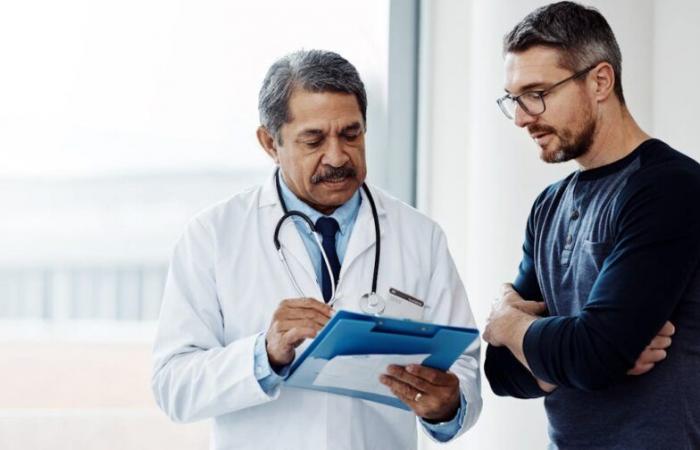The study Health Literacy Survey (HLS 2020-2021), the first of its kind in France, reveals that 44% of adults in France have difficulty accessing, understanding, evaluating and using health information. This survey also highlights that these difficulties could have a negative impact on the behavior and state of health of the people concerned.
You may have already felt lost when faced with information related to your health, whether it is understanding how to protect yourself from a given illness, using the health system, or using digital tools, among other things. . Don’t worry, you’re not alone in this. In fact, one in two French people experience such difficulties.
This is what reveals an international survey on “health literacy”, a concept which covers the knowledge, skills, motivation and ability of an individual to access, understand, evaluate and use health information in order to make decisions for promote your health.
A problem which is not specific to France, since it is also found in the 16 other European countries which participated in this survey. Let us look in more detail at the difficulties encountered by the French highlighted by this work, in which we participated.
A worrying observation
The online survey was conducted in two waves (May 2020 and January 2021) among more than 2,000 adults aged 18 to 75 residing in mainland France. This work not only allowed us to take stock of health literacy in our country, but also to explore certain specific themes, such as navigation in the health system, digital literacy and communication with doctors. . Our results highlight several key points.
First of all, almost half of French people have difficulty accessing information on health topics. For example, 40% believe that it is difficult to know how to protect yourself from diseases based on information available in the media.
Another lesson: three-quarters of French people experience difficulty navigating the health system (that is to say, mobilizing information on its functioning and organization). For example, more than two-thirds of health system users say they have difficulty defending themselves if care does not meet their expectations, or have difficulty understanding health system reforms.
Nearly three-quarters of French people have difficulty using digital health tools. For example, nearly two-thirds of respondents struggle to assess the relevance and reliability of online information, and 69% struggle to detect the commercial interests behind that information. Finally, more than 50% of those questioned find it difficult to use the information sought on the Internet to solve a health problem.
On the other hand, communication with doctors poses fewer problems, since less than a third of respondents report difficulties in this area.
Marked social inequalities
The study reveals more frequent difficulties among respondents with chronic illnesses, as well as a social gradient in health literacy: French people in more unfavorable socio-economic situations are more likely to encounter difficulties.
In this regard, it is interesting to point out that the difference in health literacy levels based on perceived social status is more marked in France than in the other countries that participated in the study.
Another finding: a good level of health literacy is generally associated with more favorable health behaviors and a feeling of being healthier.
For example, our survey made it possible to establish a link between health literacy and physical activity or consumption of fruits and vegetables. As the level of health literacy increases, the likelihood of engaging in regular physical activity and consuming fruits and vegetables every day increases.
These results do not make it possible to establish cause and effect links, but they invite us to take into consideration the individual needs of users or more vulnerable population groups in terms of health literacy.
They highlight the importance of taking into account social inequalities in the development of health policies. This requires the development of more equitable care, education and health promotion systems that are better adapted to the skills of the population. At the same time, skills development must prioritize the declared difficulties.
This survey will be renewed in 2025, with SESSTIM and Santé publique France continuing their partnership, and around twenty countries committing to it at the same time. Other aspects of health literacy will be explored, for example the processing of information on vaccination or even mental health.
This approach is part of a major project led by the World Health Organization (WHO)-Regional Office for Europe aimed at improving the health literacy of populations, as well as making our more competent health organizations.
To find out more:
– The French-speaking Health Literacy Network Réflis is the first French-speaking network of researchers dedicated to health literacy. It is a space for exchange and circulation of ideas that brings together researchers from various disciplines, all invested in health literacy and the role it can play on social health inequalities.






